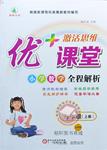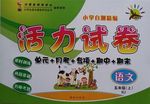题目内容
Dad, the pear is too high on this tree. It’s out of my ______
Don’t worry. Let me have a try.
A. control B. sight C. wish D. reach
练习册系列答案
 激活思维优加课堂系列答案
激活思维优加课堂系列答案 活力试卷系列答案
活力试卷系列答案 课课优能力培优100分系列答案
课课优能力培优100分系列答案
相关题目
题目内容
Dad, the pear is too high on this tree. It’s out of my ______
Don’t worry. Let me have a try.
A. control B. sight C. wish D. reach
 激活思维优加课堂系列答案
激活思维优加课堂系列答案 活力试卷系列答案
活力试卷系列答案 课课优能力培优100分系列答案
课课优能力培优100分系列答案